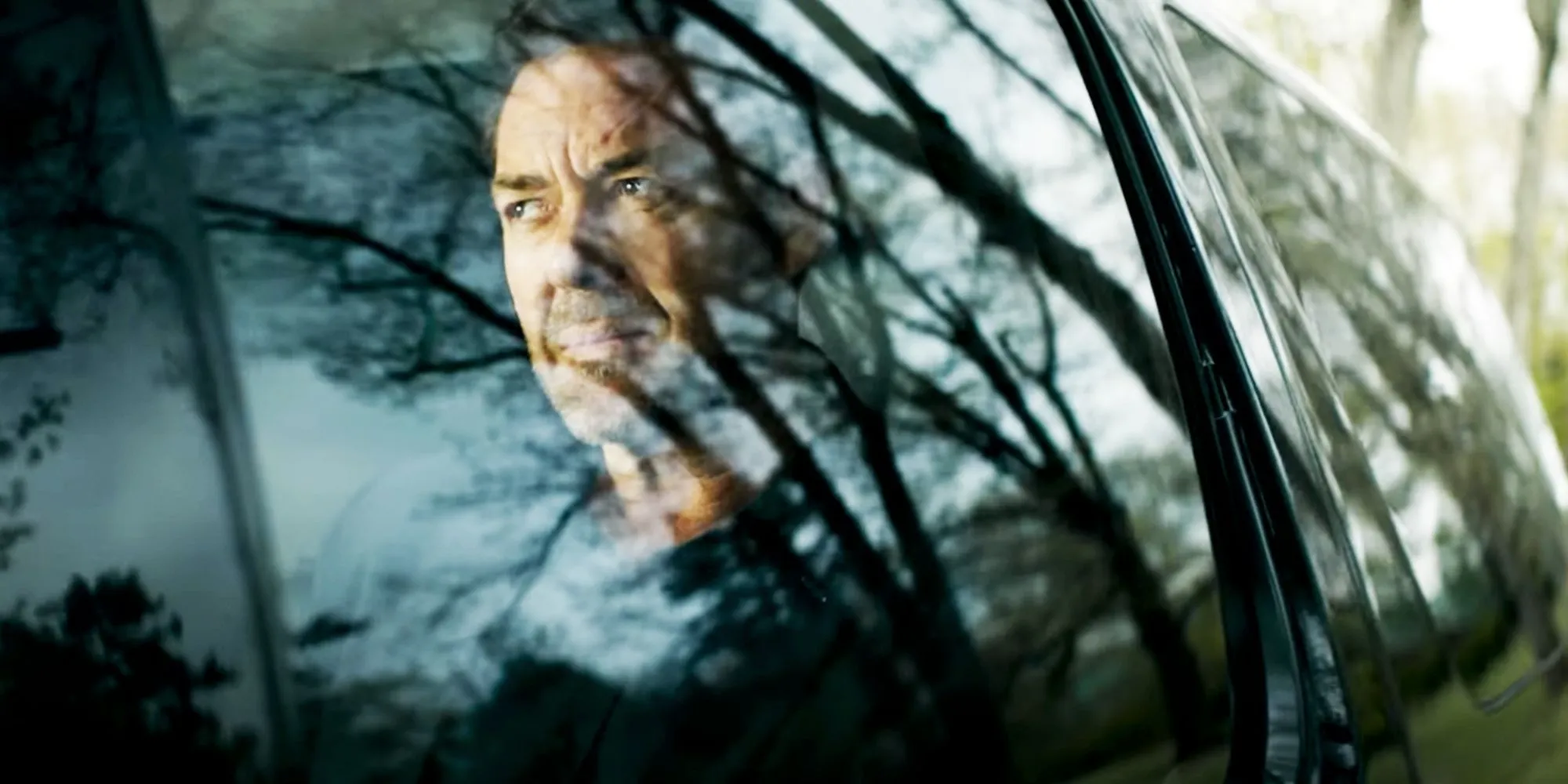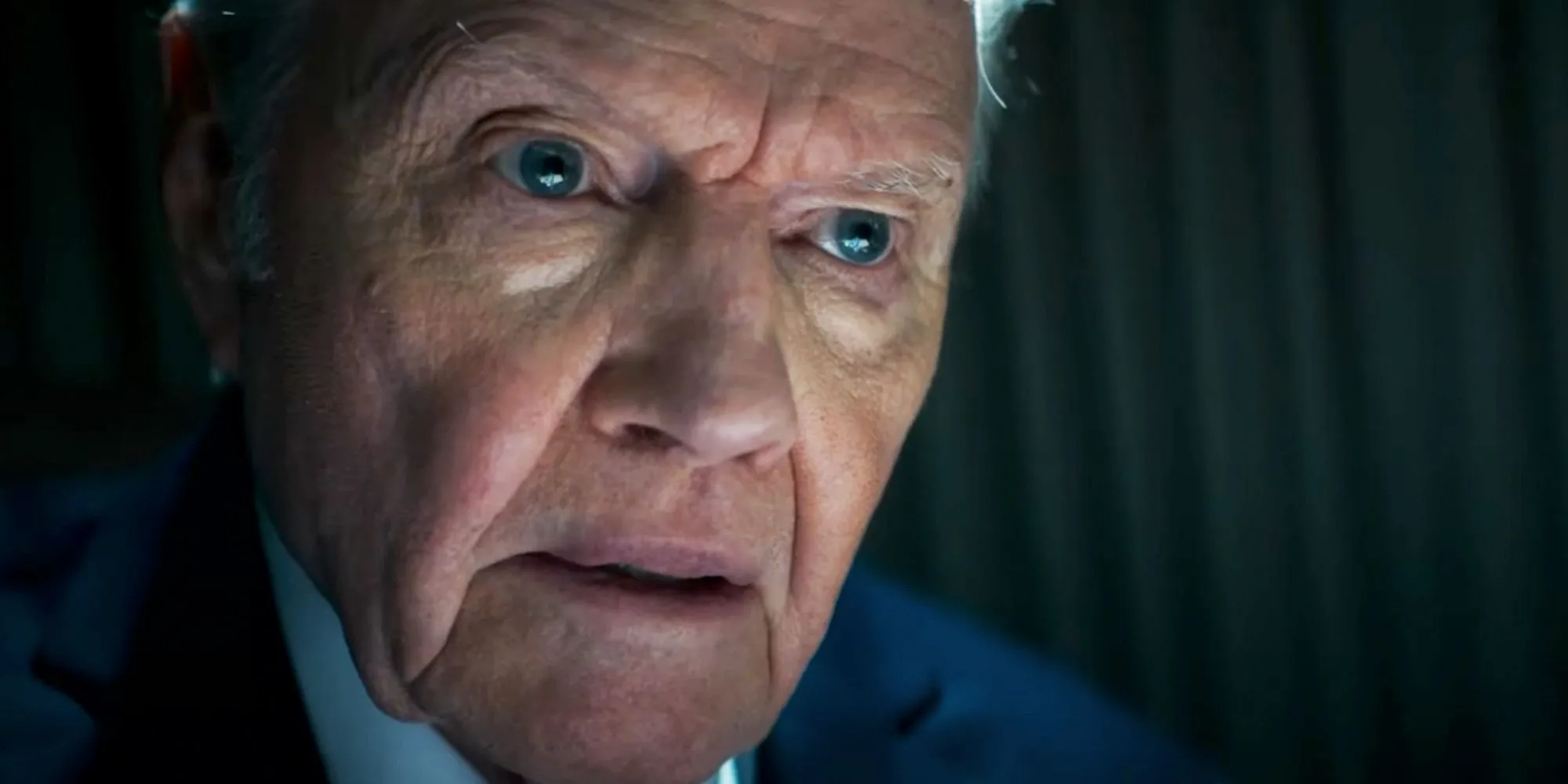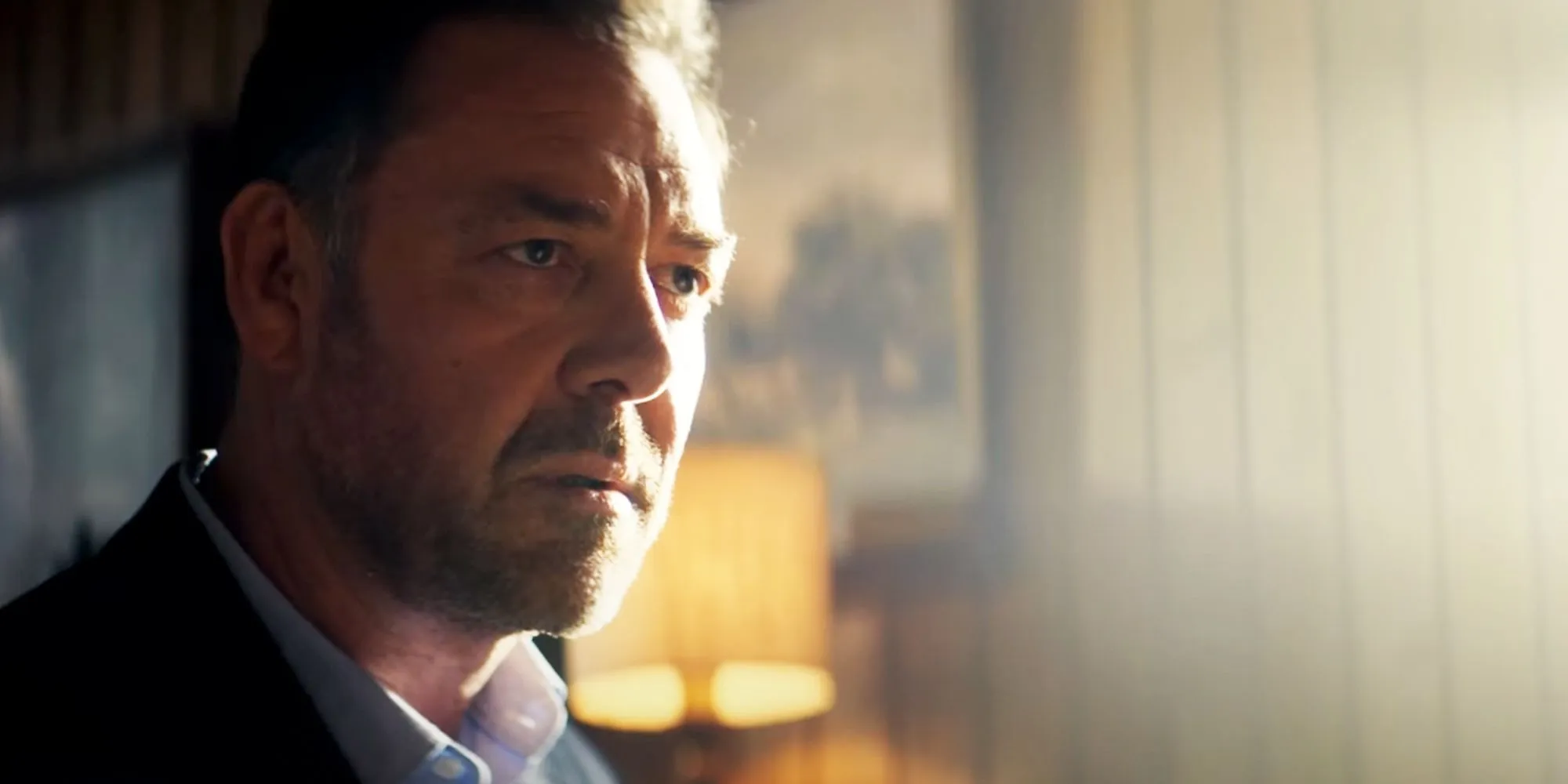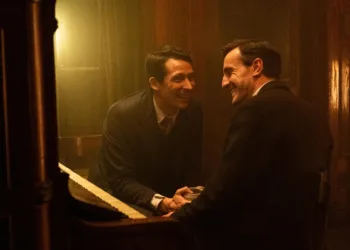Robert Wainwright, a former president of the United States, finds himself haunted by nightmares of an intruder in his remote vacation home. Wainwright now lives in retirement at Shadow Land Ranch, guarded by the Secret Service but longing for peace of mind. When the dreams grow disturbingly vivid and fears of fading memory escalate, those close to Wainwright call in help. Psychologist Elliot Davrow and journalist Rachel Donnelly arrive, though neither comes entirely free of their own ghosts from the past.
Davrow strives to analyze Wainwright’s dreams and allay his fears, knowing pressure from past decisions that still linger heavily. Donnelly takes up assisting the memoir Wainwright pens, forced to bury feelings revived by seeing Davrow, her former love, once more. As Wainwright’s panic rises with each nightmare, more realize something troubling may stalk the ranch’s woods. But what, or who, remains a deepening mystery. Director James Bamford builds an eerie atmosphere around the ranch and its fading leader, though the film falls short of resolving its shadows in a satisfying fashion.
Shadow Land presents an intriguing premise of a leader haunted by what’s real and what’s in his mind. With a strong cast led by Jon Voight’s uncertain performance as Wainwright, Bamford establishes an unsettled tone. Unfortunately, uneven storytelling keeps viewer questions outpacing the answers on offer. While its chilling introduction engagingly sets a mood, Shadow Land ultimately only whispers where a defining declaration was needed to shine light on its lingering darkness.
Shadows at Shadow Land
Our tale centers on Robert Wainwright, a former president now living a quiet life at his ranch, Shadow Land. But a haunted quality clouds this refuge. Nightmares plague Robert’s sleep, mysterious figures stalking the edge of consciousness. In these visions, a hooded assailant invades the sanctity of his home.
Alongside protecting Secret Service detail, those close to Robert seek to aid his fraying mental state. Psychologist Elliot Davrow heeds the call, arriving with personal shadows of his own. His ex-wife Rachel joins as well, tasked with shaping Robert’s memoirs yet harboring mixed feelings seeing Elliot once more.
Each work to illuminate Robert’s dreams and ease his escalating fright. Yet clues hint something more sinister may stalk the ranch’s edges. Elliot discovers strange signs of an intruder amongst the woodland debris. Are Robert’s visions mere figments or something far more real prowling the perimeter under darkness?
Other threads weave through the narrative. We learn of Robert’s lasting guilt over a past military strike and its tragic fallout. Current documents also emerge, dredging political scandals that challenge separating memory from manipulation.
As unease sinks deeper around Shadow Land and its aging leader, the identity of this intruder remains shrouded in the night. But just what do the concluding moments of this mystery reveal? And will all the lingering shadows finally find light?
Shadows of the Past
At the center of Shadow Land’s intrigue lies Robert Wainwright, a president now haunted by ghosts no secret service can shield him from. Retired to his namesake ranch, nightly visions plague his rest with a stalking specter. Are these phantoms merely products of a worried mind? Or vestiges of secrets better left interred?
Wainwright finds himself torn between clinging to glory’s fading glow and facing darkness’ truths. A military mission’s failure follows in his dreams, its consequences forever staining hands once steered a nation. Answers alone may now grant the peace still denied him.
Called to lift the veils shrouding Wainwright’s psyche comes Elliot Davrow. A man versed in unlocking memories’ meanings, yet gripped by shadows of his own. Past love once lived with Rachel, whose eyes meant clear. Their fractured bond’s raw edges emerge anew, friction feeding long-dormant feelings thrust fresh to fore.
Rachel joins this drama, tasked with shaping Wainwright’s life to the written word. But memoirs move her little; her trade exposes hidden hands that move the deeds of men. What truths may her skills now draw from these interwoven lives, and how will unearthed facts refashion fragile presences?
Between these three souls, wraith-like remnants of acts and loves lost twist fortunes to mysteries’ depths. Through night’s stillness they seek what daylight may no longer show, each grasping at a future freed from failures and faces of the fallen dead who linger yet.
Shadow Land’s Limited Vision
At Shadow Land’s helm stands James Bamford, a stuntman exploring the director’s chair. His past efforts like Air Force One Down showed flair, but did Shadow Land seize its potential?
With a budget likely modest, Birmingham faced challenges. He opted to focus inward, relying on intimate character work rather than expansive action. For the most part, committed performances lifted the story. Jon Voight especially shines as Robert, a man haunted by regrets.
Yet limitations are felt. Minor characters lack depth, while plots feel rushed. The woods seeming ever on the brink of revealing secrets, but rarely let their mysteries unfold. Music strives to stress tension, but strained resources leave it struggling to soar.
Cinematography captures the ranch’s isolating beauty, but tense moments want more atmosphere. Flashbacks offering key context feel chopped, denying insight. Editing strives to stitch seams, but rough patches show.
Production design leans into unease, from Robert’s wizened features to the shadows always lurking just beyond range of the eye. But set pieces could have profited from a tighter, unnerving visual cohesion to match the intrigue suggested.
In Bamford, promise flickers of a director learning his craft. But Shadow Land remains too safe; its scares are more implied than impactful. With vision bolder yet budgetary awareness keener, its potential may have shone more fully. As is, limitations of means cloud the murky mysteries within reach.
Still, for Bamford, this journey’s lessons can light later works’ ways to greatness. Their trials make the triumphs sweeter when mastery is found.
Shadows of the Mind
At its core, Shadow Land aims to delve into the psyches of presidents past their prime. Retired from duty, Robert now wrestles with uncertainties both real and imagined. Are threats merely fruits of fraying faculties? Or are hidden hands still working long games?
The film hints at deeper questions. How does power shape the powerful? What toll does leadership take on the led? Robert’s regrets around Astovia, though light on history, seem scars of lasting weight. Do great acts ever truly leave us?
Predictably perhaps, national security and foreign policy lurk as subtexts. Astovia remains shrouded, but clearly birthed bloodshed and blame that haunt Robert’s rest. Did manipulation mask a man’s mistakes? Were lives lost in lies? The film raises such issues, if failing to flesh them out fully.
More personal intrigues also emerge. Elliot and Rachel reunite despite their divorces. Their rapport rediscovers intimacy, yet histories’ hurts linger underneath. Elliot strives to heal Robert’s psyche, but what of the wounded hearts he carried with him to this remote ranch?
While not delivering all it teases, Shadow Land taps veins of meaning beyond its mysteries. It sees in one man’s madness merely magnified matters many men must manage. In haunting a president, perhaps it haunts a people—reminding all who guide must also be guided, lest ghosts of the mind master even the mightiest of leaders.
Shadow Land Shrouds More Than It Shows
So in the end, what are we to make of Shadow Land? The film hints at intriguing avenues—a president haunted by past decisions, questions of unseen forces still moving behind the scenes. Jon Voight anchors the story well as the troubled Robert.
Yet for all its potential, Shadow Land ultimately proves reluctant to shed light. We catch only glimpses of Robert’s turmoil, denied a true exploration of weighty themes around leadership’s lingering toll. Supporting characters and their connections feel unevenly sketched. The mystery leaves more mystery than resolution.
James Bamford shows flashes of directorial skill but lacks the resources or script to fully realize his vision here. With defter development of characters and tighter focusing on its most compelling threads, this tale of presidential paranoia could have packed more of a punch. As is, it struggles to live up to early intrigue.
In the end, Shadow Land leaves shadows of its own. It hints at depths below the surface, then fails to dive below. Potentially provocative issues are barely probed. More questions arise than answers in this missed opportunity for an insightful political thriller. For fans seeking illuminating mystery, this film may only deepen the darkness.
The Review
Shadow Land
Shadow Land features strong performances at its core but ultimately proves reluctant to shed light on intriguing themes. Potential depths around presidential turmoil and unseen forces go largely unplumbed. The film hints at much yet delivers little, leaving viewers as much in the dark as when they started.
PROS
- Strong central performance from Jon Voight as the troubled ex-president
- Intriguing premise exploring presidential paranoia and lingering effects of leadership
- Hints at potentially profound themes around decision-making, consequences, and unseen forces
CONS
- Fails to fully explore or develop many intriguing story elements and characters
- Lacks resources to realize its potential as a mystery or political thriller
- Issues and questions raised more than answered, leaving viewers uncertain.
- Uneven script and direction don't maximize strengths.





















































Discussion about this post